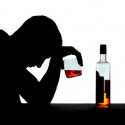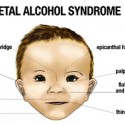How much alcohol is too much?
When does drinking cross the line into problem territory? Diagnostic tools abound in medical offices across the country, but realizing that you have a problem with alcohol often happens before you cross a therapist’s threshold. Years of fond memories accumulated from college keg parties, open-bar weddings, and beer pong at cookouts may disguise the fact that drinking is no longer an occasional, relatively harmless night of fun for you. The simplest way to determine whether you should explore a potential issue with alcohol is: if you’re thinking you might have a problem, you probably do.
To have an alcohol problem does not necessarily mean that someone is waking up covered in empty beer cans on someone else’s floor and not remembering the night before: it means that it negatively interferes with your usual functioning or causes a significant reduction of quality in daily life. Finding that you’re drifting through many days at work with cloudy thoughts and reduced motivation to accomplish tasks due to a hangover could be a sign of an alcohol problem. Recognizing that you dread social events unless you know that you’ll be drinking heavily could be a sign of an alcohol problem. Realizing that you’re using alcohol to relax and unwind in the evenings during a stressful period at work could be a sign of an alcohol problem. Even pounding beers while ignoring your initial impulse to stop every Saturday night and waking up on Sunday sick until the late afternoon could be a sign of an alcohol problem, even though it only happens once per week.
In order to recognize if you have an alcohol problem, think about your drinking. Asking yourself some questions might get you started on building an overall picture of your drinking habits and how they affect your life (these are NOT intended to be a diagnostic tool, only to get you started in thinking about your drinking):
How much and how often do you generally drink? Are you happy with this amount?
Do you often schedule things around drinking, such as not making Sunday plans or not scheduling early classes because you’ll be recovering from a hangover?
Do you have fun without drinking, and would you go to the same social events you currently attend if alcohol were not available?
Do you find yourself resolving to drink fewer drinks, but somehow you always end up drinking just as much or more than you would have anyway?
Have friends or family expressed concern to you or made comments about the amount you drink?
Do you feel guilty after drinking, or find that you say and do things when you’re drinking that harms your relationships with other people?
Have you ever tried to stop drinking for a period of time (for example, a week or a month) and found that you weren’t able to (and yes, it counts as not able to even if “special occasions” got in the way like weddings or parties?)
Most importantly, think to yourself about what living your best life means to you. Is your drinking hindering you in achieving your best life, accomplishing goals, or being happy and healthy? If so, the potential of having an alcohol problem might be worth exploring. In the next article, we will explore the process of evaluating a drinking problem, taking that first step to do something about it, and different types of alcohol treatment.
source: The Examiner


